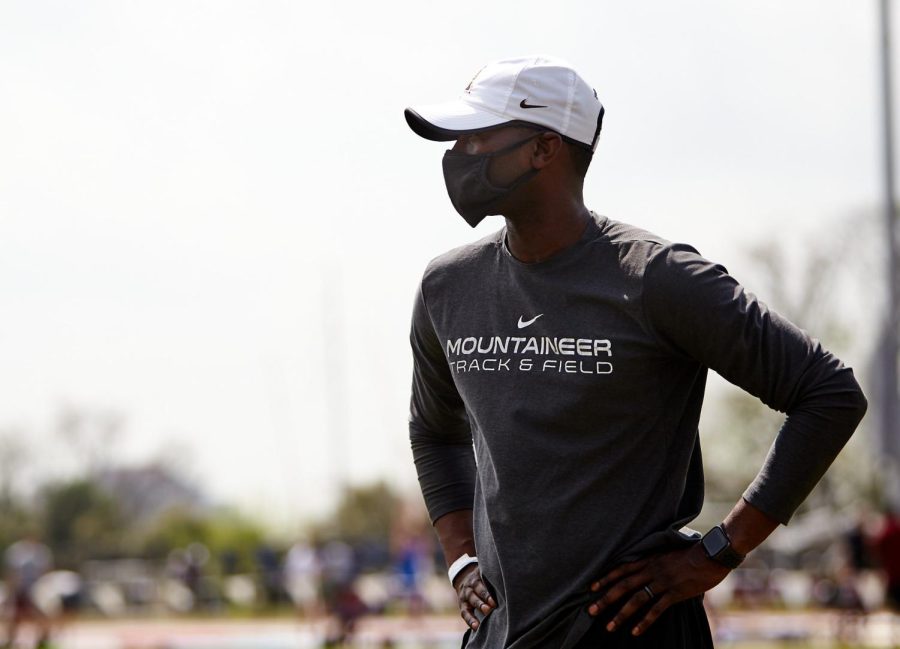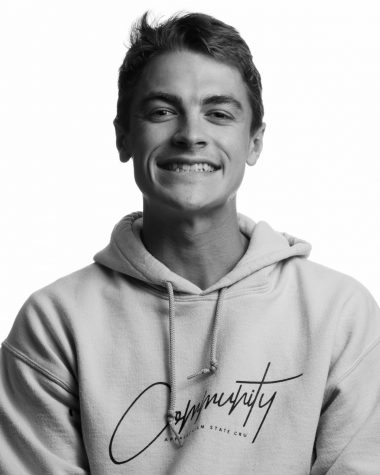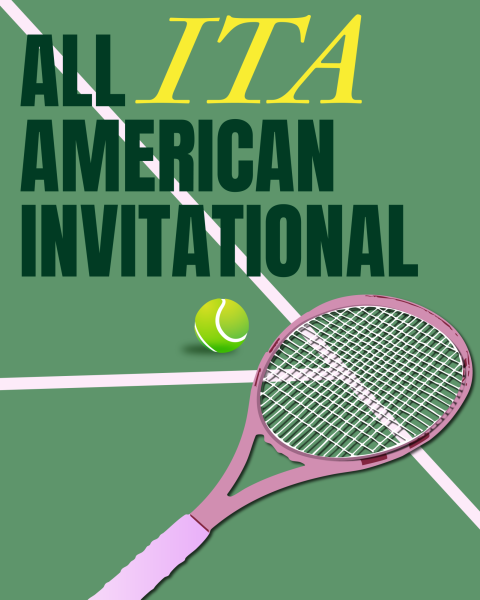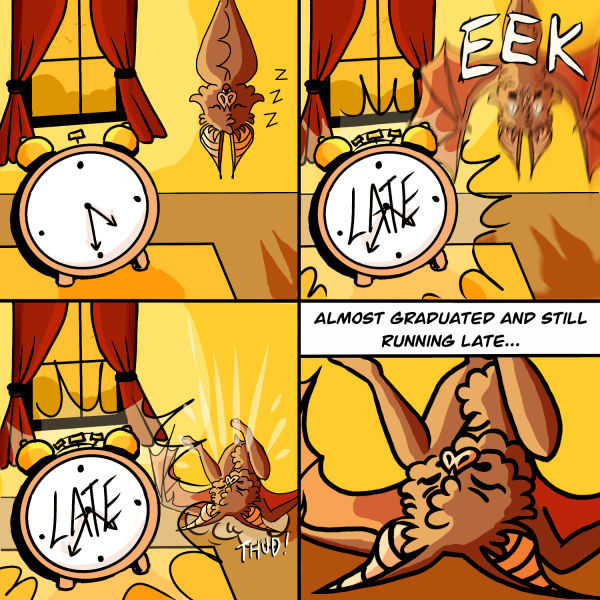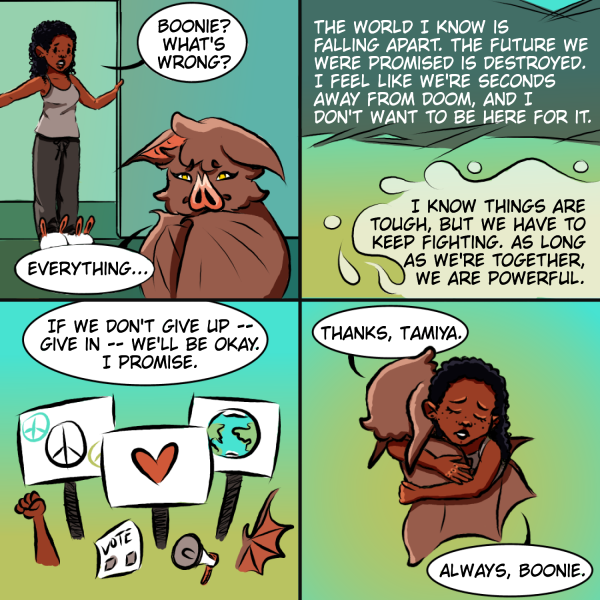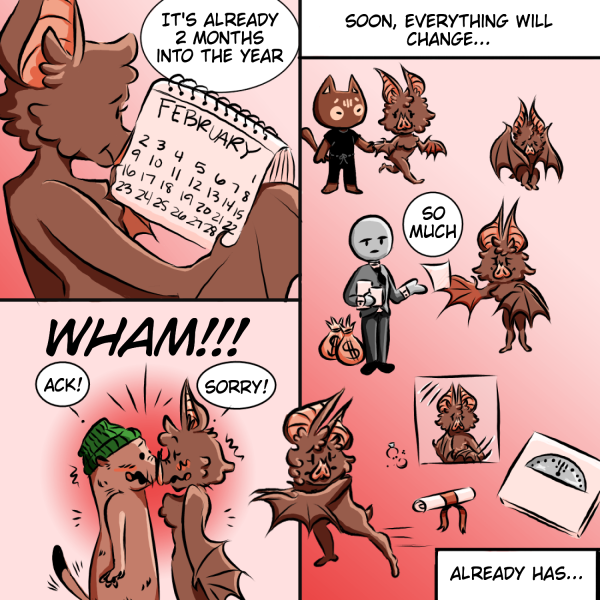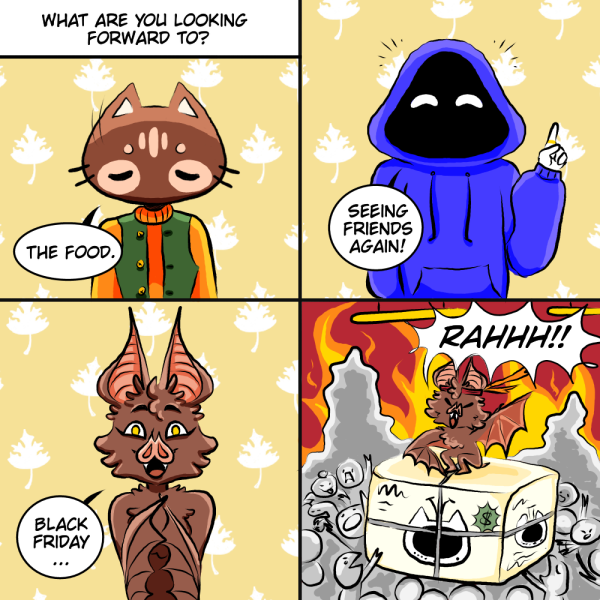App State’s Black coaches use leadership positions to nurture athletes
Track and field head coach Damion McLean watches over his team at the Weems Baskin Invitational during the 2021 season.
February 9, 2022
Out of 54 coaches across App State’s 16 sports, 10 are coaches of color, nine of which are Black. With a leadership position at a predominantly white university, these coaches have a unique opportunity to lead and nurture student-athletes of color.
“I feel like that’s one of the biggest things that sticks out to me because I got some of the … kids on the team that want to reach out to me or text me about how they’re feeling,” assistant wrestling coach Randall Diabe said. “That’s something very important to these young guys … to see somebody that’s been through the program, is the same color and he’s at a higher position.”
Track and field throws coach Whitney Smyre is one of three Black coaches for the track team, the most of any Mountaineer team. Smyre competed for the track and field team as a student-athlete from 2006 to 2011, where she was an eight-time All-SoCon performer, 12-time All-Region athlete and a Division I NCAA East Regional Qualifier in the Hammer Throw.
While at App State, Smyre was mentored by two coaches who continue to impact her today. Former coaches April Smith and John Weaver guided Smyre in competing but also imparted lessons of how to be a good coach upon Smyre.
“I would not be half the coach I am today if it weren’t for them,” Smyre wrote in an email.
Smyre also credits her mother as a role model for her growing up. Her mom was an athlete in both high school and college and was Smyre’s first basketball coach and biggest fan.
“She always kept me level-headed and grounded when I needed it the most,” Smyre said.
Smyre’s position allows her to look out for student-athletes who may struggle with being a minority at App State.
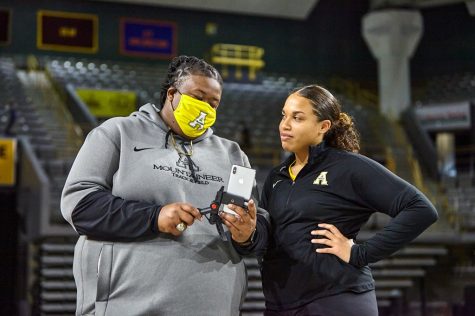
“I think it’s important to pull those student-athletes to the side that look like me every now and then just to let them know, ‘Hey, I’ve been where you are, and I’m here for you if you need anything. I got you.’” Smyre said.
Leading the track team is the only Black head coach on campus, Damion McLean.
“It means a lot,” McLean wrote in an email. “To my knowledge, there have only been six head coaches of color since I stepped on campus as a freshman in ’97.”
McLean hails from small town Lincolnton where he played football, basketball and ran track. His initial interest in sports was mostly due to his natural athletic ability, and he never planned on being a coach.
“Coaching was not something I envisioned myself doing, but whatever I commit to something, I always try to be the best,” McLean said. “I soon realized I found my passion.”
Finding his way to the top position of a Division I sport was far from easy, and part of that was due to McLean’s race. McLean said he had to work extremely hard being Black in a predominantly white field.
“As a person of color, I have experienced that often you have to be 10 times better than everyone else to get the same level of recognition,” McLean said. “So you’re constantly in a position of proving yourself.”
McLean mentors student-athletes of all races but is aware of his unique opportunity to nurture athletes that look like him.
“I coach and treat all of my athletes the same, no matter what color or nationality they are,” McLean said. “I do sit down and have a conversation with parents and recruits of color because for the past 19 years of coaching in Boone, I have gotten asked how is it being Black in Boone or at App State.”
While coaching young athletes to become great track runners is a major part of his job, McLean also has an opportunity to guide college students through a pivotal time in their lives. McLean thinks back to two of his high school coaches, Lavell Hall and Chris Knott, as he advises his athletes.
“There are two coaches that I looked up to because they wanted to help me get better. Others were coaching me to make themselves look good,” McLean said. “Both of these men taught me a lot about life and the importance of relationships in your life.”
Randall Diabe is also grateful for his opportunity to nurture student-athletes of color as an assistant with the wrestling team.
“We have some colored kids on the team as well. Some of them feel comfortable coming to me because I can relate,” Diabe said.
Diabe racked up numerous accolades while competing at App State, including a 77-48 record, multiple All-SoCon recognitions and two NCAA Championships qualifications. Diabe concluded his career in 2019 and made his coaching debut for the Mountaineers later that year.
Diabe has become a source of comfort for wrestlers of color on the team. The athletes sometimes reach out to Diabe looking for advice, knowing that he was once in the position they are in.
“I had some personal talks with guys that don’t know if it’s the right spot because we’re just outnumbered,” Diabe said. “We have like two Black people, and the rest of the team is white, so they’ve got a Black guy on the staff they can come and talk to.”
Men’s basketball assistant coach Frank Young came to Boone after serving on head coach Dustin Kerns’ staff at Presbyterian College for two seasons. Before coaching with Kerns, Young spent three seasons at North Florida as the director of operations as the Ospreys reached the NCAA Tournament in 2015 and the NIT in 2016.
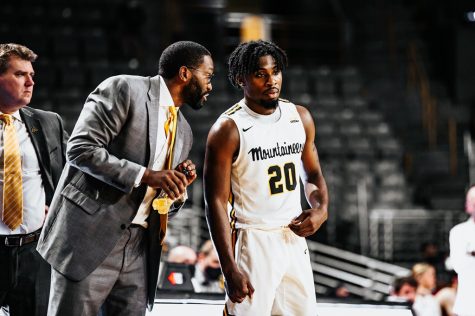
“After three seasons there, I received a call from Dustin Kerns about joining his staff at Presbyterian College, and he had worked with one of my best friends at Wofford, Darris Nichols, so there was a connection there,” Young wrote in an email. “Coach Kerns got the job here at App State and brought the whole staff with him.”
Growing up in Tallahassee, Florida, Young was raised by his mother and older brother after his dad passed away in a car accident when Young was 14.
“Growing up, my mentors were my mom, older brother, godfather and high school coach,” Young said. “They all taught a lot of life values. Learned a lot from all of them on and off the court. A lot of those values I still hold on to today.”
Young’s mom made sure to get him involved in sports at an early age, playing football and baseball before he chose to stick with basketball. After a successful college career at West Virginia and spending time overseas, Young began coaching.
“The itch started after I stopped playing pro ball overseas in Europe and started missing the game,” Young said. “I got a call from a college teammate about joining his staff as an assistant and decided to give it a shot and have loved coaching ever since.”
Beyond his coaching status, Young acknowledges that being a Black man in a predominantly white town provides its challenges. Even walking into a room or business where he’s the only Black person, Young fears getting strange looks from others.
“It is not because of any specific situation that has happened in Boone, but this is the thought process of being in any town/city and knowing that you have to be aware of your surroundings and know what is going on around you on a daily basis,” Young said. “Everybody is naturally more comfortable with people that look like them, so when you do not see anyone that doesn’t look like you a natural discomfort immediately sets in. With that being said, the people in Boone have made me feel very comfortable since I moved here.”
Young devotes a lot of his focus to delivering life lessons and advice to his players, emphasizing that there is life after basketball. He especially attempts to nurture student-athletes of color on the team since he can give guidance based on his own experience.
“It is something I worry about with them because they are outnumbered here, and on top of being an athlete, they are under an extreme microscope and have to understand that a lot of eyes are on them at all times,” Young said. “I have a lot of tough conversations with our players one-on-one about things that are going on in the world because I want to know how they handle those things and want them to be able to voice their emotions and opinions.”

